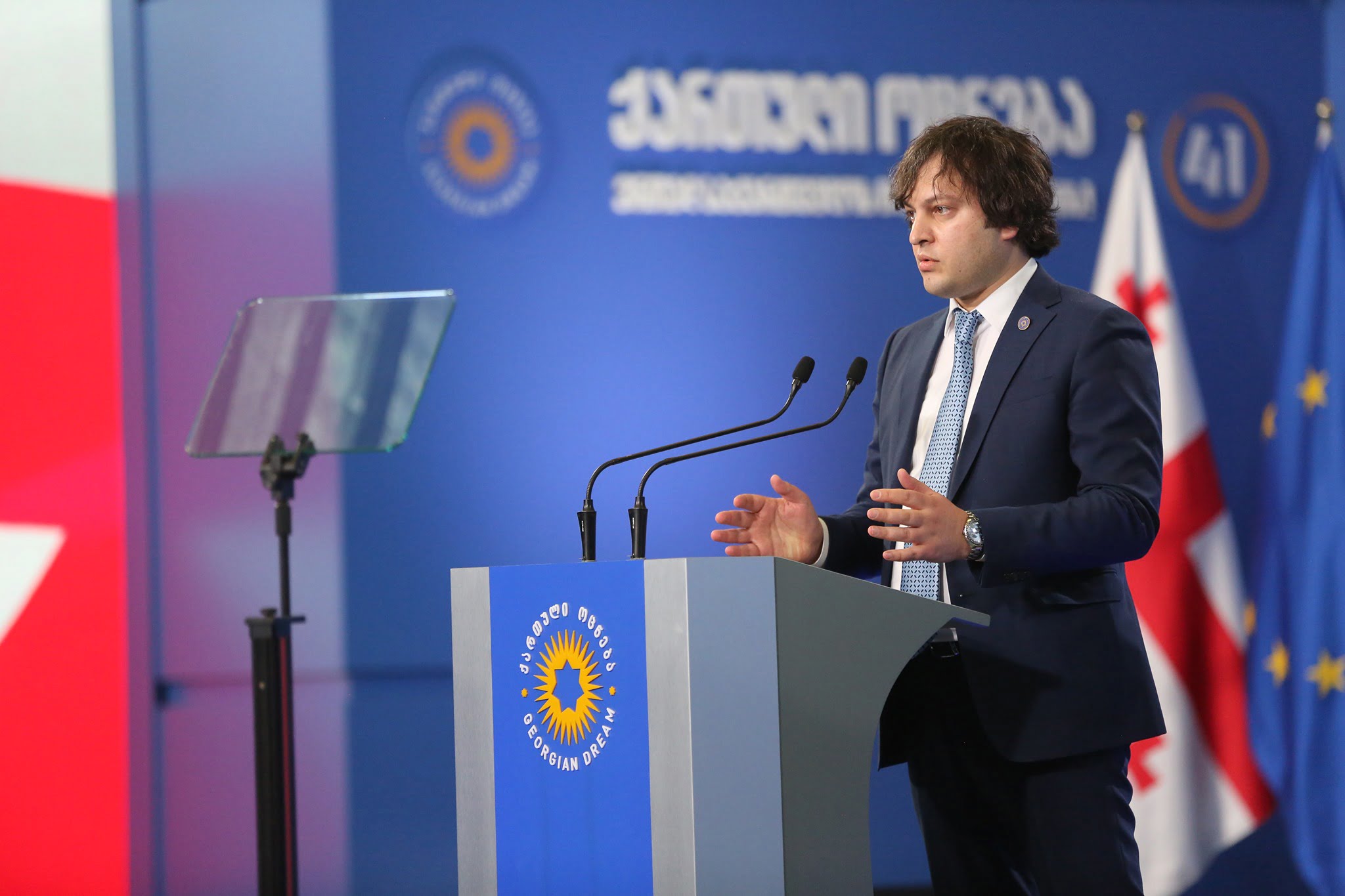Ruling Party Condones Violent Assaults on Critics
The last ten days saw at least six attacks on the ruling party critics. While officially they were carried out by “outraged citizens,” the ruling party condones and encourages them.
Why is it important?
The opposition and civic groups have successfully painted the Georgian Dream as a pro-Russian actor. Bitter and gearing up for the 2024 elections, the ruling party seems to be betting on escalation to simultaneously cow the critics and portray them as violent, thus sapping the opposition of Western support.
Series of violent acts
Georgian politics is no stranger to violence, but attacks on government critics have recently intensified.
- Zurab Japaridze was punched in the face en route to a youth camp on June 17.
- A group of men cursed and threw stones at the youth camp in question shortly afterward on the same day, shouting insults and making obscene gestures. A liberal-minded activist group held the camp.
- Students protesting at the University during the lecture by GD Chair Irakli Kobakhidze were beaten on the same day, and one was subsequently threatened at the hospital by a man with a handgun, who claimed to be a policeman.
- Levan Berdzenishvili, a respected liberal scholar, was egged and insulted while walking in the street on June 20.
- On June 27, the anchor of the satirical news show, Misha Mshvildadze, was punched in the face while entering a supermarket.
- An employee of the United National Movement was reported beaten the same day.
“Outraged citizens”
Assailants in all cases, save the last one, claimed to be outraged citizens, “fathers” railing against “liberals” (in Japaridze’s case), “insulting of the ancestors” (in Berdzenishvili’s case), “protecting homosexuals” and “bringing children into depravity” (Japaridze, Mshvildadze) and “insulting the Patriarch [of the Georgian Orthodox Church” (Japaridze, Mshvildadze’s cases).
- The assailants of Japaridze and Mshvildadze posted nearly identical messages on Facebook shortly afterward, presenting themselves as simple men and father, explaining their motives and claiming responsibility.
- Similar motives were claimed by so-called “conservative” assailants at the youth camp.
What do they say?
Reactions from the ruling party ranged from threatening violence to condoning it by shifting the blame to the other side.
- Encouraging violence:
- MP Beka Odisharia, Chair of the Committee on Diaspora and Caucasus, said in the Parliament on June 26, “Those who would call us pro-Russian will get it in their faces,” first orally and then “if they don’t calm down, otherwise.”
- MP Dimitri Samkharadze of the Georgian Dream posted on social media he “would never condemn violence when directed at Georgia’s enemies! On the contrary, I would encourage it.”
- Condoning violence: leaders of the ruling party took the line of shifting the blame to their critics:
- Party Chair Irakli Kobakhidze said, “So this scum should be calling me Putinist, and I shall not respond?!” He argued the opposition is inciting violence, supported by “NGOs and Ambassadors.” A “specific ambassador” told youths that violence is a form of activism, Kobakhdize said, without naming the culprit.
- Tbilisi Mayor Kakha Kaladze claimed “violence is unacceptable” but equated “verbal violence” that, according to him, is flooding the opposition channels with physical assaults. He called journalists “hypocrites” who exercise violence by insisting on questions he does not want to answer yet condemn assaults on their colleagues.
- Parliament Chair Shalva Papuashvili justified the attack on Zurab Japaridze, saying “Girchi” was “an extremist organization” busy with radicalization, “recognizing neither laws nor rules.”
- MP Irakli Kadagishvili, Mayor Kakha Kaladze, and GD faction whip Gia Volski all claimed that the victims of assaults were responsible for the wrath either for holding unacceptable opinions or being “violent” themselves.
Is this new?
The Georgian Dream has resorted to such tactics in the past. After GDs came to power, prominent figures of the departing administration were attacked in the streets. PM Garibashvili’s statement on July 5, 2021, was seen by many as condoning violence against the media and the LGBT community, which ended in a violent pogrom. Attempts to dehumanize opponents were often made before elections when GD-affiliated groups traditionally put up “blood-stained posters” to vilify the opposition and civic activists.
What now?
Civic activist Giorgi Msvhenieradze says the ruling party is engaged in “verbal normalization of violence” against the opponents and is “spreading and promoting” narratives that would mask its true motives – fear of criticism – by matters that may effectively trigger public outcry.
- This fits into the pattern of the Georgian Dream increasingly shifting towards the “sovereignist” and “conservative” political platform to portray itself as a protector of traditions and values against the Western-led “liberals.”
- The current escalation also points to the ruling party’s wish to mobilize hardline supporters ahead of the 2024 votes after being humiliated by the failure to pass the “foreign agents” law.
This post is also available in: ქართული Русский
